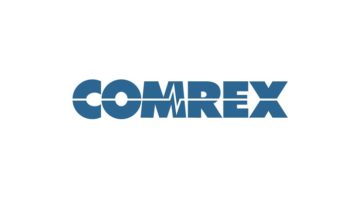Recently, I made suggestions about ways public radio stations could increase their revenue streams from advertising and marketing agencies in the article “You’re Leaving Money on the Table” in the Sept. 9 issue.
A number of these were commonsense suggestions to me, but I also received some fairly scathing responses, so I would like to address them — sometimes with equal fervor. (Read some of these reader comments here.)
First, and with all due respect, it is not my job as an ad agency professional to have a detailed and intimate understanding of the FCC as it impacts your industry. That is your job. Your responsibility is to propose ideas that can clear guidelines and at the same time satisfy our goals. The mantra of the marketing industry is “Don’t make your problems my problems.” Come forward with solutions instead.
REGULATION RESPONSE

And by the way, you aren’t the only ones who have to deal with regulators.
Do you honestly think we enjoy writing disclaimers in car dealer radio spots? We probably hate writing them just as much as you hate hearing them. One agency I worked for had 80+ car dealer associations as clients across 40 states. We needed two full-time paralegals on staff just to review the disclaimer copy and ensure that it fulfilled the appropriate financial regulations, which vary from state to state and can be impacted by three to five legislative bodies in each state.
Where you have essentially one principal regulator in “Uncle Charlie,” we can come into contact with literally hundreds of local, state and federal regulators as well as lottery commissions, states’ attorneys general, community zoning commissions, as well as the occasional aspiring politician who wants to stir up trouble to get attention. And we haven’t even brought up our clients’ legal teams, who can be even tougher than the regulators.
In short, we’ve learned to get around our regulatory challenges. Stop whining and figure out how to get around yours.
WE KNOW YOU
Next issue … There were suggestions that agencies do not know about public radio and further do not wish to know. That is an absurd and false assumption. If you were to survey most agency executives and creatives, you would learn that consumption of public radio is very high among them, and the opinion of public radio is equally high.
Many execs listen to “Morning Edition” on the way to work, and many creatives have an NPR station’s music playing quietly in the background as they contemplate new ideas. You apparently have no idea how captive of an audience you have among advertising agency people.
It is abundantly clear that they know a lot more about you than you know about them.
Additionally, the best media planners do not come into a planning situation with a preconceived notion that we are going to use one set of media and leave out another. It is our responsibility to be able to carry on a 10–15 minute conversation and educate a client on every mass medium out there, including public radio. The last thing we need is for a client to bring up a medium during a plan discussion that our media team knows little about.
BRAND INTEGRITY
I — and most media planners — recognize that public radio is not an advertising medium and have no desire for you to make radical changes that adversely impact your relationships with your listeners. We do not want you to be commercial radio stations. There are plenty of them already.
We see public radio as a marketing medium that gives us an opportunity to demonstrate to certain target audiences that we support the organizations they support. That’s good enough for us if the target audience is lucrative enough. We just want to be able to communicate our support in a manner that is consistent with the rest of our advertising and marketing programs.
We are, after all, specifically and exclusively contracted to develop and shepherd our clients’ brand identities. Part of that task means using our client-approved creative, our talent, taglines and other elements in all possible situations, including public radio. So learn what our strategy is and figure out ways you can appropriately adapt to it. We are very willing to tell you. All you need to do is ask.
IMAGINE THE POTENTIAL
My harshest criticism is that it appears to me that many in public radio seem to have mastered the craft of proudly saying “no,” then walking their merry way, content and satisfied that their pompous resistance has enabled them to leave those delicious-looking, yet most likely sour grapes on the table.
By consistently digging your feet in the sand while the rest of the media and marketing world around you has changed radically, you have, with arrogant blissful ignorance, succeeded in staying the same — and thus become obsolete in the process.
You are the butterfly that refuses to come out of the cocoon.
The disappointing part of this entire discussion is that the marketing community still sees far more marketing potential in public radio than public radio sees (or perhaps wants to see) in itself.
It takes hard and diligent work to figure out a way to say “yes.” It takes research, occasional conversations with your attorneys, a willingness to take risks, and a desire to modify your offering to fit the needs of the marketing world of today, yet retain a firm grasp of the essence and beauty of your medium.
I will say there are also many who see both the need and benefits of a transformation (or perhaps, evolution). I applaud you and your courage to think differently. My hope is that you are part of a quiet majority, because your voices register much lower on the VU meter than the voices of dogmatism.
To the rest of you, consider how much you could gain if you replaced cantankerous resistance with constructive engagement and dialogue. We could do some great things together if you did. We really could.
Evan Brown has worked for large corporate and independent ad agencies like McCann/Jay, Momentum Worldwide, Bates USA, Doner, Fahlgren and MARC USA. He has been involved in both public and commercial radio, having worked on air and in production and advertising sales, and buying commercial and public radio for clients at local and network levels.












